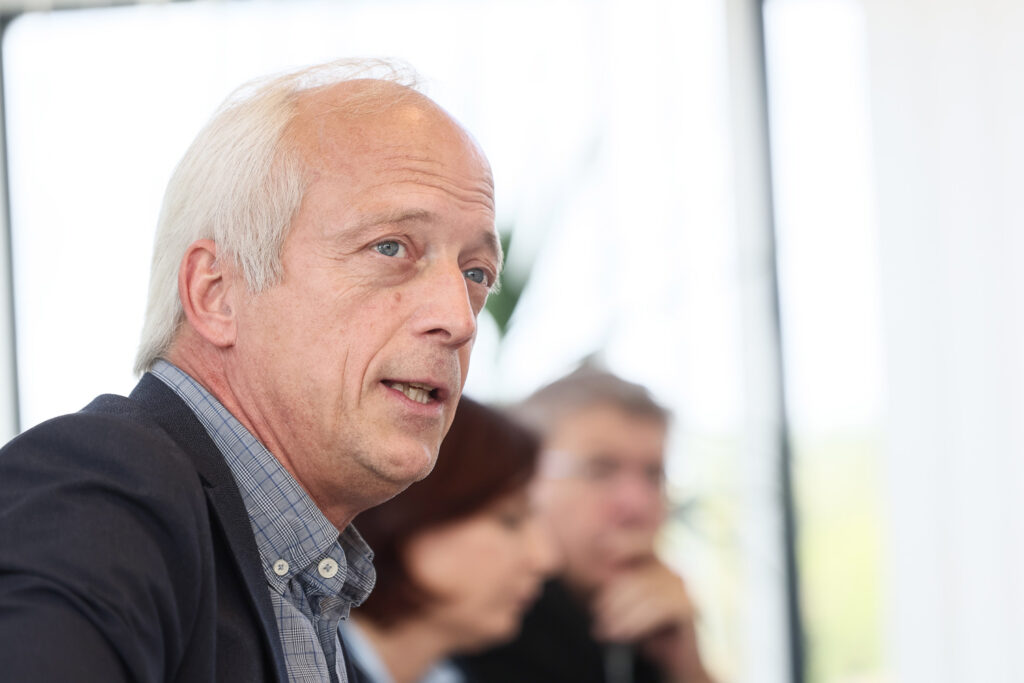The Walloon government has decided to adopt the European standard of 0.1 μg/l for 20 PFAS in drinking water immediately, instead of by January 1, 2026 as previously planned.
Health and Environment Minister Yves Coppieters made the announcement on Thursday, as he shared that a draft decree to be presented to the government for a first reading in the coming weeks.
Coppieters assured that no violations of this standard have been detected in Wallonia’s drinking water due to extensive monitoring, which will continue until 2025 with increased supervision in identified risk areas.
Temporary threshold values for sludge
Additionally, a target value of 4 ng/l for the four most hazardous PFAS will be introduced by 2028 in keeping with the European Food Safety Authority’s recommendations.
Per-and polyfluoroalkyl substances (PFAS) are pollutants that can be found everywhere in the environment and are known to contaminate drinking water and food sources. The EU's Drinking Water Directive limits total PFAS in potable water to 0.5 µg/l and levels for 20 individual PFAS to 0.1 µg/l. Member States are required to take necessary measures to ensure compliance.
Coppieters is also suggesting temporary threshold values for sludge and discharges from wastewater treatment plants. He highlighted that sludge from these plants poses a contamination risk when used as fertiliser in agriculture, so a temporary target of 40 μg/kg MS for six PFAS in sewage sludge has been set.
Focus on 28 PFAS of gretest concern in wastewater
These thresholds will be reassessed by the end of 2025 or at the latest by the end of 2026. The aim is to manage sludge that does not meet the target values and to develop sustainable alternatives for urban sludge management.
An industrial discharge characterisation campaign will also be launched to measure the 28 PFAS of greatest concern in wastewater discharges. This will be conducted in collaboration with industries and include regular analyses.
The objective is to establish emission limits for industries potentially releasing PFAS, particularly in waste treatment, chemistry, and metallurgy. An exploratory study on atmospheric PFAS emissions will also be conducted to define air monitoring standards.
Reinforcing health measures
Wallonia's government says the region is committed to advocating for its environmental particularities in European discussions on revising directives concerning sewage sludge and groundwater.
Health measures are also being reinforced, with blood samples being retaken in Chièvres and Ronquières due to errors in previous results, while enhanced medical and psychosocial support for affected populations is being provided. Coppieters promised transparency in reporting biomonitoring results.
Farmers are receiving specific biomonitoring for about 50 molecules, a programme started in February 2024, before the PFAS crisis, and still ongoing.
Support for research on solutions to PFAS issues
Wallonia will work with the federal government to coordinate food surveillance in areas potentially impacted by PFAS, its authorities stress.
The region also pledges to support scientific research to find sustainable solutions to PFAS-related issues, including alternatives in industrial and agricultural processes and techniques for reducing emissions and understanding the transfer of PFAS into the environment and humans.
“This PFAS crisis will take as long as the asbestos crisis to resolve, but by adopting an integrated and proactive approach linking human, animal, and environmental health, Wallonia is positioning itself as a key player in combating emerging pollutants,” Minister Coppieters said.

